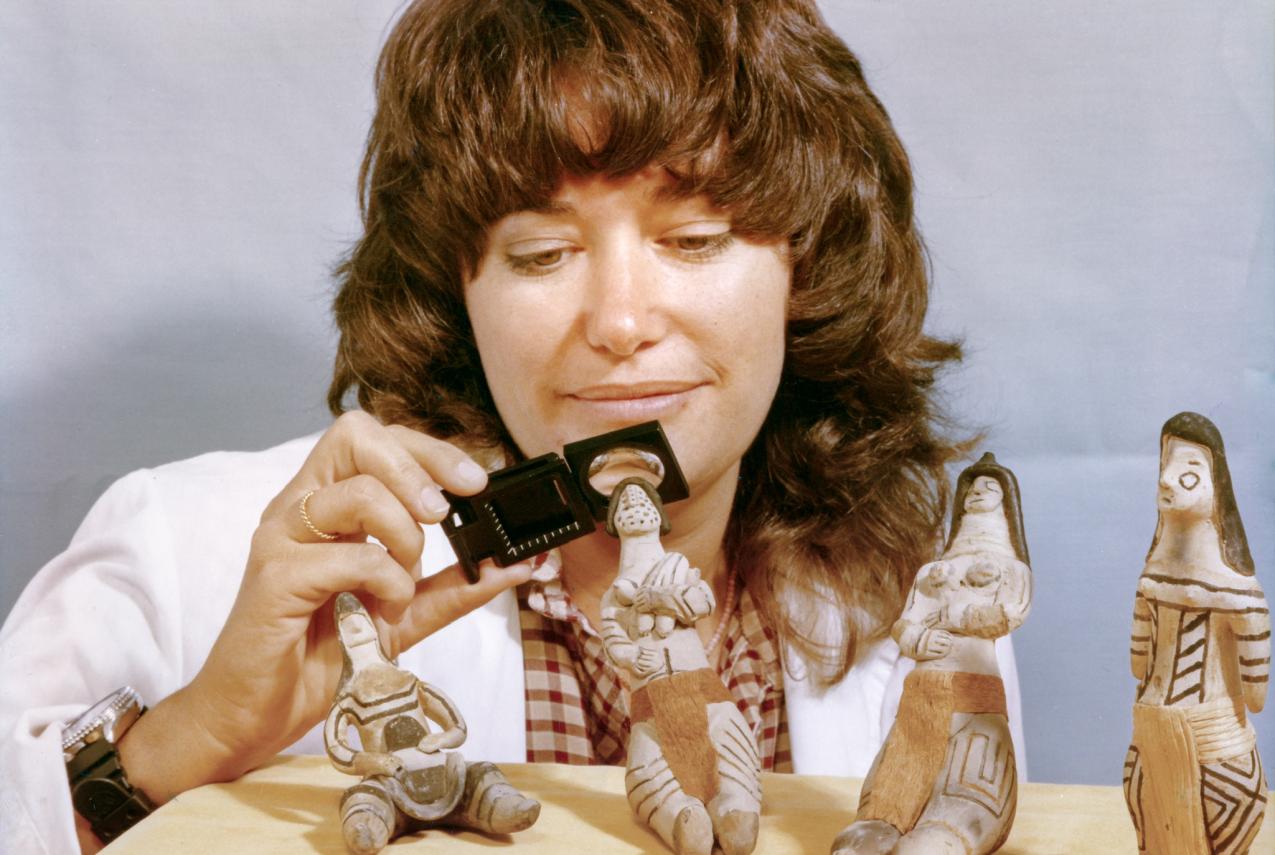After 46 extraordinary years at the Western Australian Museum, Dr Moya Smith retires, having played a pivotal role in shaping the Museum’s archaeological and Aboriginal cultures collections — and deepening its ability to share these stories widely.
Moya began at the WA Museum in 1979 as an Aboriginal Sites heritage officer, before stepping into the role of Assistant Curator in the Anthropology Department in 1981. By the late 1990s, Moya had become Head of the Anthropology & Archaeology Department — a position she held for 25 years, during which she uncovered countless stories within its rich and diverse collections.
Moya’s knowledge of the ancient world — from Greece, Rome, and Egypt to the Middle East — is vast, and she was instrumental in delivering some of the Museum’s most popular exhibitions, including Life and Death under the Pharaohs (1998), Secrets of the Afterlife (2003), Perpetual Green Scenes (2007), A Day in Pompeii (2010), Afghanistan: Hidden Treasures (2014), Ancient Greeks (2021), and Discovering Ancient Egypt (2023).
Among Moya’s many accomplishments, her leadership in curating Katta Djinoong stands out. This groundbreaking gallery traced the history and living cultures of Aboriginal peoples in Western Australia, from ancient times to the present. Developed in close collaboration with the WA Museum Aboriginal Advisory Committee, Katta Djinoong was the first gallery in Australia to place Aboriginal voices at the heart of its narrative. It set a new benchmark for cultural representation and laid the foundation for future exhibitions and museum practices across the state and in the New Museum Project.
Moya made significant contributions to the development of Changes, Ngalang Koort Boodja Wirn and WA Treasures galleries at WA Museum Boola Bardip, provided curatorial expertise for the special opening exhibition Songlines (2020), and more recently helped bring to life Spinifex People: Art and stories from Pila Nguru — the largest collection of Spinifex Art ever exhibited together.
Moya has represented the WA Museum on key bodies including the Aboriginal Cultural Material Committee and the Science Advisory Council of the Kimberley Foundation Australia (now Rock Art Australia), where she championed the significance of Aboriginal cultural heritage and archaeological value. She also founded the WA Museum Centre for Ancient Egyptian Studies and contributed as a Project Investigator on major Australian Research Council initiatives, including Lifeways of the First Australians and Collecting the West.
Throughout her career, Moya has fostered strong, respectful relationships with Aboriginal communities across Western Australia, reinforcing the Museum’s role as a trusted custodian of cultural heritage. Her unwavering commitment to openness and accessibility has ensured that individuals and communities can engage meaningfully with the Museum’s collections—a legacy that continues to shape the institution’s values and practices today.
Moya, thank you for all your years of service – your impact has reached many across Western Australia and beyond, and will live on for years to come.
